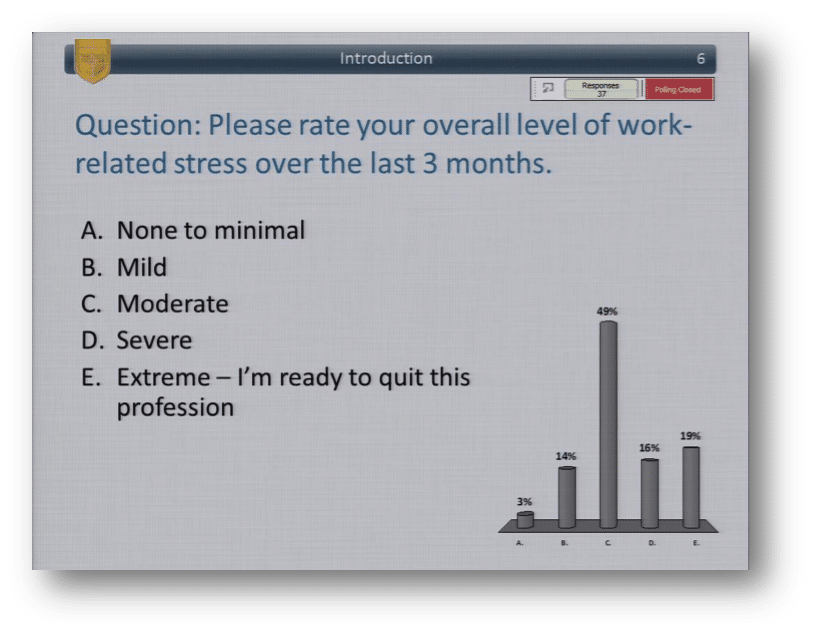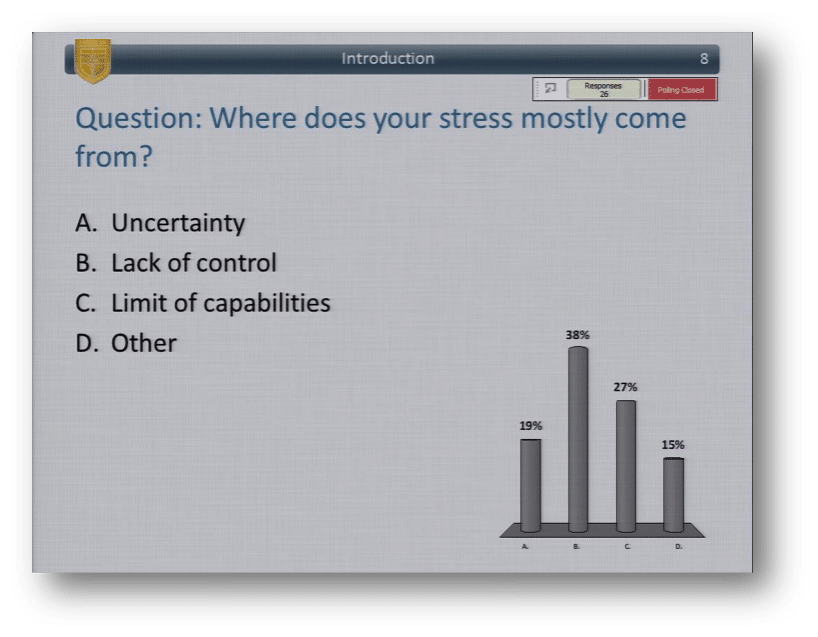I just returned three and a half days ago from our Fall 2015 MasterPsych Conference. It was a blast, by the way, and thank you to all who attended, who interacted with me, and who gave suggestions and feedback. I am ever grateful for all your warmth and kind words. I truly felt part of a community.
My focus today is more serious, somber even, however. One question I asked during my last presentation – through the audience response system (ARS) – is included in the slide below.
You see that the mode, the most common response given, by nearly half of respondents, was endorsement of a “moderate” level of work-related stress. Hmmm. Is this good? I certainly don’t think so. Is it acceptable? I’m not sure but probably not given that work-related stress, despite some ups and downs, tends to remain relatively steady over longer periods of time. So even a moderate level of chronic stress takes its toll.

This makes me sad: more than one in three of us suffers from a severe or extreme level of stress, and one in five suffers from an extreme level of stress.
From whence does this stress originate? I asked another question, albeit a broad, even vague, one. Here is the question and the responses.
So, most of the stress that psychiatrists experience comes from a sense of lack of control. This makes sense. Any organism, not just humans, who is trapped in an environment that is experienced as being uncontrollable, is frightening or depressogenic. Think to ancient peoples praying to the gods of storms, rain or good harvests. It’s better to spend one’s wealth making offerings to the gods who sometimes listen and often don’t, than to acknowledge one’s inability to control one’s environment.
Think also about rats that are unpredictably shocked with electric current on the floor of their cages. The unpredictable nature of this aversive stimulus and the experienced lack of control to do anything about it, lead the rats to give up. This is the basis of the famous finding of ‘learned helplessness’ as a depressive response to an uncontrollable environment.
Enough dwelling on the problem! What should we do to solve it? I don’t want to accept the fact that over a third of my colleagues live with severe or extreme stress!
I have some (not many and not great, but some) ideas that might help. But first, please write to let me know your thoughts, experiences with stress and with overcoming stress, and suggestions on changes. Let’s make this weekly eNewsletter a forum for brainstorming and encouraging individual actions that will make all of us happier, less stressed, and as a result, better and longer-lasting clinicians.
This is my call to action. Please write! Let me know if you wish me to use your name, or post your submission anonymously. Thanks in advance.
Until next time,
Dr. Jack








Leave A Comment